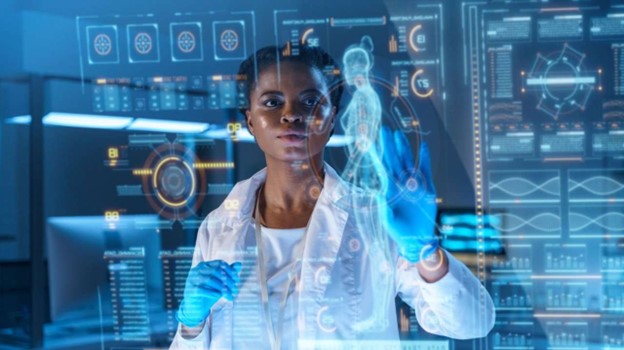

Elevating Healthcare: AI-Driven Diagnostics
In the dynamic landscape of healthcare, artificial intelligence (AI) is emerging as a powerful force, particularly in the realm of diagnostics. AI-driven health diagnostics are revolutionizing the way medical conditions are identified and assessed, ushering in a new era of precision and efficiency.
The Rise of AI in Diagnostics
Artificial intelligence has swiftly made its mark in healthcare, and diagnostics represent a key area of application. AI algorithms, powered by machine learning, can analyze vast amounts of medical data with unprecedented speed and accuracy. This capability is transforming the diagnostic process, providing healthcare professionals with valuable insights for more informed decision-making.
Precision and Speed in Diagnosis
One of the primary advantages of AI-driven health diagnostics is the precision and speed it brings to the diagnostic journey. Traditional diagnostic methods may be time-consuming, and human interpretation can be subjective. AI, on the other hand, can rapidly process complex data sets, leading to quicker and more accurate diagnoses. This speed is particularly crucial in urgent medical situations.
Enhanced Imaging and Radiology
AI has significantly enhanced the field of medical imaging and radiology. Advanced algorithms can analyze medical images, such as X-rays, MRIs, and CT scans, with remarkable accuracy. AI-driven diagnostics not only assist in identifying anomalies but also contribute to early detection of conditions, providing a critical advantage in the treatment and management of diseases.
Personalized Medicine through AI Insights
As AI delves into health diagnostics, it paves the way for personalized medicine. By analyzing an individual’s genetic makeup, lifestyle factors, and medical history, AI algorithms can generate insights that guide healthcare professionals in tailoring treatment plans. This personalized approach holds the promise of more effective and targeted interventions.
Reducing Diagnostic Errors
Diagnostic errors can have serious consequences, impacting patient outcomes. AI-driven health diagnostics act as a powerful tool in minimizing such errors. The ability of AI algorithms to cross-reference vast databases and learn from diverse cases contributes to a more robust diagnostic process, reducing the likelihood of misinterpretation.
Challenges and Ethical Considerations
While AI in health diagnostics presents tremendous opportunities, it also comes with challenges and ethical considerations. Ensuring the privacy and security of patient data, addressing biases in algorithms, and maintaining transparency in decision-making are critical aspects that need careful consideration. The responsible integration of AI into healthcare requires ongoing vigilance and ethical guidelines.
Empowering Healthcare Professionals
Far from replacing human expertise, AI-driven health diagnostics are designed to empower healthcare professionals. By automating routine tasks and providing data-driven insights, AI allows professionals to focus more on patient care and complex decision-making. This collaboration between technology and human expertise augurs well for the future of healthcare.
AI-Driven Diagnostics: Unleashing Innovation
Explore the innovative world of AI-driven health diagnostics at BMA Unleash. This platform is dedicated to unleashing the full potential of AI in healthcare, offering insights, resources, and the latest developments in the field of diagnostic innovation.
Conclusion: Transforming Diagnostics for a Healthier Tomorrow
AI-driven health diagnostics represent a transformative leap forward in healthcare. The combination of precision, speed, and personalization holds the potential to redefine diagnostic processes, leading to improved patient outcomes and a more efficient healthcare system. As AI continues to evolve, its role in diagnostics promises to be a cornerstone in the journey towards a healthier and more technologically advanced future.









